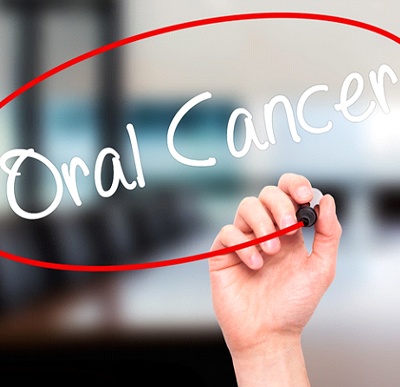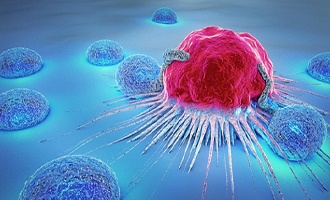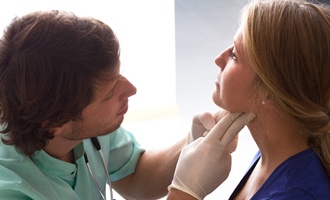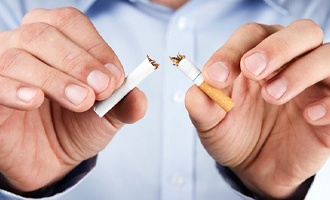Oral Cancer Screenings – Westminster, CO
A Quick, Simple, and Potentially Lifesaving Exam

At the beginning of 2020, it was estimated that roughly 53,000 people in the U.S. would be diagnosed with oral cancer. This serious disease kills nearly 10,000 people every year. In many cases, the people who lose the battle against it were not diagnosed while the cancer was still in its early stages. Indeed, oral cancer screenings often prove to be lifesaving! At JB Dental, we include a screening as part of every routine exam. On this page, you will learn more about oral cancer and how our team can help you identify its early indications.
What Is Oral Cancer?

“Oral cancer” is an umbrella term that describes any type of uncontrolled, abnormal cell growth that affects the throat, lips, cheeks, tongue, gums, or any other oral structure. It can have a range of different causes, including smoking, heavy drinking, genetics, and the human papilloma virus (HPV). It is most prevalent in older individuals and men, but it can affect people of any age group, gender, or lifestyle.
Oral Cancer Screenings

The oral cancer screening process is simple, quick, and noninvasive. Your dentist or dental hygienist will perform a visual and tactile examination of your oral cavity, as well as the glands and lymph nodes around your head. They will check for anything that might indicate the possibility of oral cancer, such as strange lumps or discolored tissue. They may also ask you whether you have experienced any symptoms that might point to oral cancer, such as a persistent sore throat or voice changes.
Oral Cancer Diagnosis and Treatment
If our team notices any cause for concern during your screening, we will help you arrange for further testing. We may refer you to a local specialist or encourage you to make an appointment with your general physician, who can schedule you for a biopsy. If the test reveals that cancer is present, you and your oncologist can discuss treatment options. Surgery, chemotherapy, and radiation are all commonly used to battle oral cancer. The exact treatment protocol will depend on the nature and the extent of the disease.
Preventing Oral Cancer

You can reduce your risk of developing oral cancer by:
- Avoiding the use of all tobacco products
- Protecting your lips from the sun (with an SPF lip balm or a sun hat)
- Drinking alcohol in moderation (or not drinking at all)
- Getting vaccinated for HPV (this is generally recommended for patients aged 11 – 26)
- Eating a balanced diet that contains plenty of vegetables and fruits
Signs of Oral Cancer
Oral cancer screenings are vital, but you should also be diligent about monitoring yourself for any signs of cancer between your dental appointments. Causes for concern include:
- Discolored tissue in the mouth
- Lumps in the oral tissues
- Mouth sores that do not heal
- Mouth pain
- A persistent sore throat or the sensation that something is stuck in the throat
- Unexplained weight loss
- Voice changes
- Difficulty swallowing or chewing
- Persistent bad breath
Have you been screened for oral cancer lately? If not, contact us today to schedule your screening. It could save your life!
